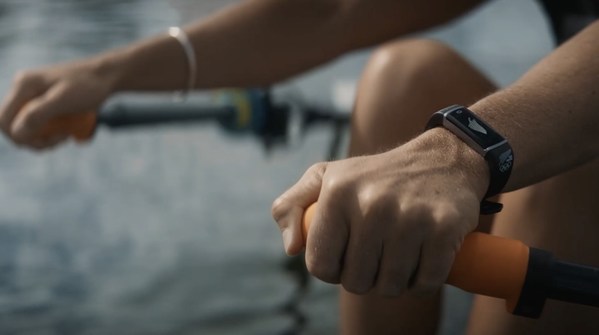New Zealand Tech Solution Connects Olympic Athletes With Stay-at-Home Fans
AUCKLAND, New Zealand, March 15, 2021 /PRNewswire/ -- A clever wearable developed in New Zealand and designed to connect fans who can't travel with athletes at this year's Olympic and Paralympic Games, is now being offered to Games fans globally in a remarkable example of the Olympic spirit of friendship, solidarity and fair play.
The ANZ Support Band is a wristband that will enable fans at home to send a "pulse of support" to athletes at the Tokyo Games by tapping their device or directly through the NZ Team app.
The device uses Bluetooth technology in a world first that brings athletes and fans within touching distance despite closed borders, social distancing and athlete bubbles.
It's this lack of fan presence and the support they bring that has led to the decision by ANZ, with support from the New Zealand Olympic and Paralympic Teams, to open source the technology they've spent more than 18-months developing for the rest of the world to use.
"We're all part of the global Olympic family and not having our friends and families with us will impact us all – whether we're representing New Zealand or any one of the world's 206 Olympic nations," says Kereyn Smith, CEO and Secretary General of the NZ Olympic Team.
"Athletes have worked incredibly hard to get to Tokyo. That's why ANZ decided to open up the technology for all to use. Right now, we and the world's athletes need this more than ever."
Taking place in Tokyo, Japan, from 23 July 2021, this year's highly anticipated Olympic and Paralympic Games will look very different. With COVID-19 limiting audiences and travel to an event that historically attracts thousands.
"In Tokyo, all national teams will be facing the same challenges and we know the difference the support from fans and loved ones can make," says Antonia Watson, CEO of ANZ New Zealand.
"This is why we wanted to make sure athletes wherever they are from could still receive that support. As New Zealanders we'd be proud to share this technology to help."
The technology has been closely developed with the input from a number of current Olympians and Paralympians.
This includes sprint cyclist and Rio Silver medalist Sam Webster; competing in his second games he is already anticipating just how different the atmosphere at this year's Olympics will be.
"As an athlete, you thrive off the energy a crowd can bring. Without that support it's tough, I love the fact we are giving away this incredible technology so my fellow athletes from around the globe have the chance to feel their fans' support too" says Sam.
Olympic Associations around the world are encouraged to get in touch as soon as they can to get the technology underway and ensure their athletes can be supported from afar.
For more information and to discover the support band, visit the ANZ Support Band website.
For more information on the initiative contact supportband@tbwa.com
![]() View original content to download multimedia:http://www.prnewswire.com/news-releases/new-zealand-tech-solution-connects-olympic-athletes-with-stay-at-home-fans-301246949.html
View original content to download multimedia:http://www.prnewswire.com/news-releases/new-zealand-tech-solution-connects-olympic-athletes-with-stay-at-home-fans-301246949.html
Authors: PR Newswire
Read more https://www.prnasia.com/story/archive/3307749_CN07749_0





